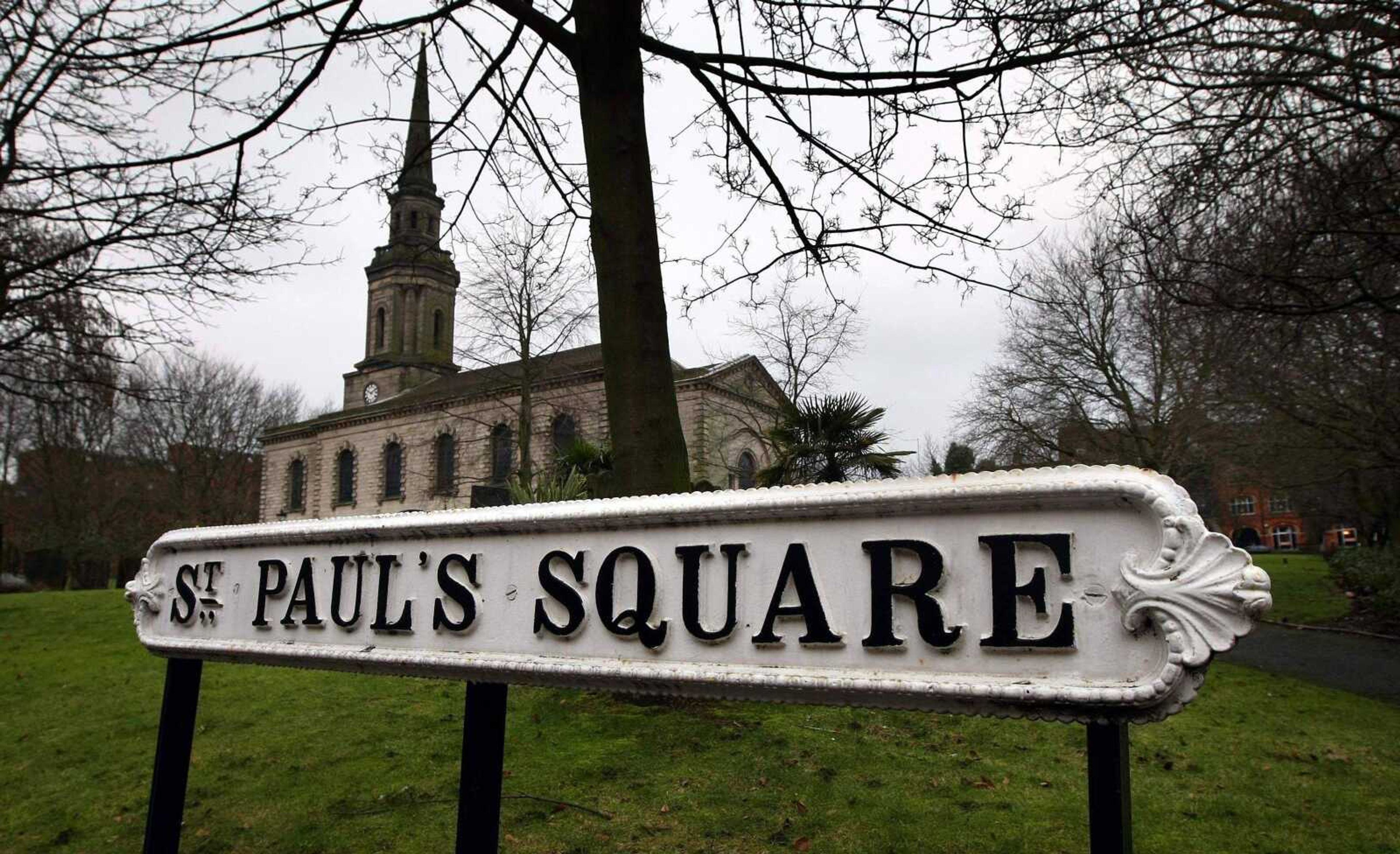Point of contention: British city bans apostrophe from its street signs
LONDON -- On the streets of Birmingham, the queen's English is now the queens English. England's second-largest city has decided to drop apostrophes from all its street signs, saying they're confusing and old-fashioned. But some purists are downright possessive about the punctuation mark...
LONDON -- On the streets of Birmingham, the queen's English is now the queens English.
England's second-largest city has decided to drop apostrophes from all its street signs, saying they're confusing and old-fashioned.
But some purists are downright possessive about the punctuation mark.
It seems that Birmingham officials have been taking a hammer to grammar for years, quietly dropping apostrophes from street signs since the 1950s. Through the decades, residents have frequently launched spirited campaigns to restore the missing punctuation to signs denoting such places as "St. Pauls Square" or "Acocks Green."
This week, the council made it official, saying it was banning the punctuation mark from signs in a bid to end the dispute once and for all.

Councilor Martin Mullaney, who heads the city's transport scrutiny committee, said he decided to act after yet another interminable debate into whether "Kings Heath," a Birmingham suburb, should be rewritten with an apostrophe.
"I had to make a final decision on this," he said Friday. "We keep debating apostrophes in meetings, and we have other things to do."
Mullaney hopes to stop public campaigns to restore the apostrophe that would tell passers-by that "Kings Heath" was once owned by the monarchy.
"Apostrophes denote possessions that are no longer accurate and are not needed," he said. "More importantly, they confuse people. If I want to go to a restaurant, I don't want to have an A-level [high school diploma] in English to find it."
But grammarians say apostrophes enrich the English language.
"They are such sweet-looking things that play a crucial role in the English language," said Marie Clair of the Plain English Society, which campaigns for the use of simple English. "It's always worth taking the effort to understand them, instead of ignoring them."
There is no national body responsible for regulating place names in Britain. Its main mapping agency, Ordnance Survey, which provides data for emergency services, takes its information from local governments, and each one is free to decide how it uses punctuation.
To sticklers, a missing or misplaced apostrophe can be a major offense.
British grammarians have railed for decades against storekeepers' signs advertising the sale of "apple's and pear's," or pubs offering "chip's and pea's."
In her best-selling book "Eats, Shoots and Leaves," Lynne Truss recorded her fury at the title of the Hugh Grant-Sandra Bullock comedy "Two Weeks Notice," insisting it should be "Two Weeks' Notice."
"Those spineless types who talk about abolishing the apostrophe are missing the point, and the pun is very much intended," she wrote.
Connect with the Southeast Missourian Newsroom:
For corrections to this story or other insights for the editor, click here. To submit a letter to the editor, click here. To learn about the Southeast Missourian’s AI Policy, click here.










